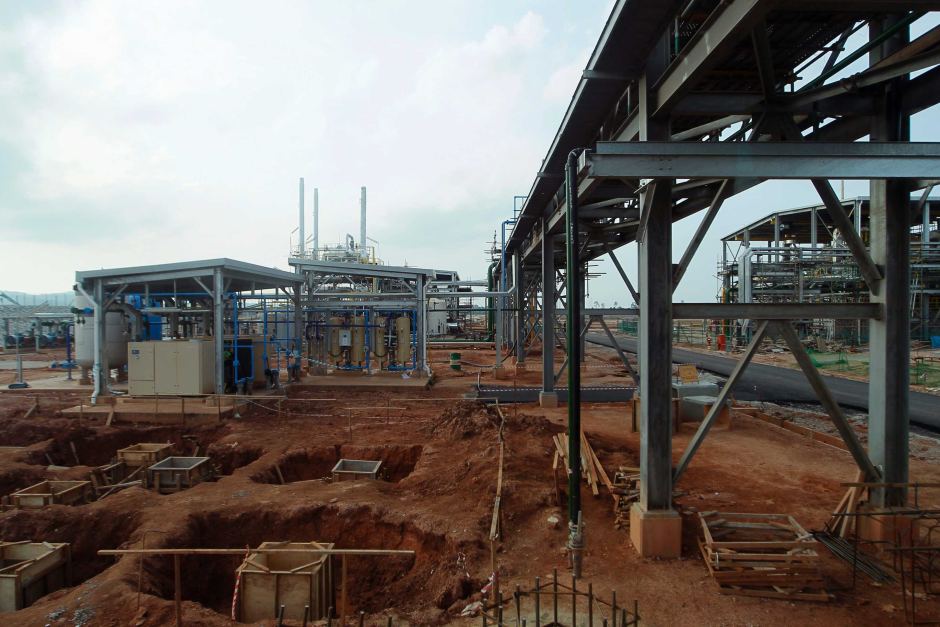Wesfarmers $1.5b bid for Rare Earths Miner Lynas

Wesfarmers is planning to dip into its war chest from the spin-off of Coles and the sale of its coal assets and Kmart Tyre and Auto, proposing a $1.5 billion acquisition of rare earths miner Lynas.
The conglomerate has made a cash offer of $2.25 per share — a premium of nearly 45 per cent on Lynas’ closing price on Monday.
Lynas mines at Mt Weld in Wesfarmers’ home state of WA and is the major supplier of rare earths outside China. Rare earths are used for electronics, energy storage and medical imaging, among other applications.
It processes the materials at its chemical plant in Malaysia, where its operating licence has been put at risk due to environmental restrictions.
Today, Wesfarmers said its offer is conditional on due diligence, regulatory approval and ensuring the relevant operating licences in Malaysia are in force and will remain in force for a “satisfactory period” following the completion of the transaction.
Wesfarmers said its experience in mining and chemical processing are “highly complementary” to Lynas.
“An investment in Lynas leverages our unique assets and capabilities, including in chemical processing, and will deliver Lynas’ shareholders with an attractive premium and certain cash return,” said managing director Rob Scott.
“We also acknowledge the importance of the Lynas Advanced Materials Plant in Malaysia and the strong contribution made by Lynas’ management team and its employees across all operations.
“We expect Lynas’ employees to continue to play an important role in taking the company forward.”
This is the first purchase proposed by Wesfarmers since its recent spate of asset disposals, which added more than $3 billion to its half-year profit reported last month.
Some of the proceeds were returned to shareholders through a $1.00 per share special dividend.
Offer price is low, says analyst
Lynas said it is assessing Wesfarmers’ proposal and shareholders do not need to take any action, noting that the offer was unsolicited and highly conditional.
Shares in Lynas surged nearly 40 per cent after returning to trade at 1:00pm (AEDT), while Wesfarmers shares fell 3.6 per cent to $33.77.
CLSA analyst Dylan Kelly said the offer price of $2.25 per share is low compared to his valuation of the company, which is based on his expectation that the price of the rare earth NdPr oxide will rise substantially.
“Every new electric vehicle requires around one to two kilograms of rare earth permanent magnets, used in their motors, and the demand growth outlook for that as a commodity is quite strong over the next 10 years,” said Mr Kelly, who has a ‘high conviction buy’ rating on Lynas stock.
“We see that this is one particular company with the best asset, with the highest operating leverage to that thematic.”
Waste restrictions a risk to Malaysian licence
Lynas’ Malaysian operating licence is up for renewal in September and new conditions pose a regulatory hurdle for the miner.
The country’s Atomic Energy Licensing Board has ordered Lynas to export stockpiles of waste from the plant.
When announcing its half-year results last month, Lynas said it was unable to do so in the timeframe mandated by the agency.
“Lynas Malaysia continues to engage in discussions with the Malaysian government seeking to agree a basis upon which Lynas will achieve a renewal of its operating licence,” it said.
The Malaysian plant has been plagued by controversy for a number of years, with residents and environmental groups concerned about radioactive residue.
While the company continues its push to avoid having to export the waste, CLSA’s Dylan Kelly believes it should move the material for political and social reasons.
“We think the cost is significant but it’s not fatal, so we see that they can remove all of that material, but it’s not going to be able to be completed by September, the government will need to give them some type of extension,” he said.
“We are confident that they will receive an extension because of the strategic nature of the material they’re producing there.
“This is critical for the Japanese auto makers, as well as the US, and it has very strategic defence applications as well, so I think it should not be underestimated how strategic this plant is and how much pressure the US, the EU and Japan have placed on a diplomatic level to Malaysia to ensure the plant remains open.”
Source: ABC News, 26 March 2019
